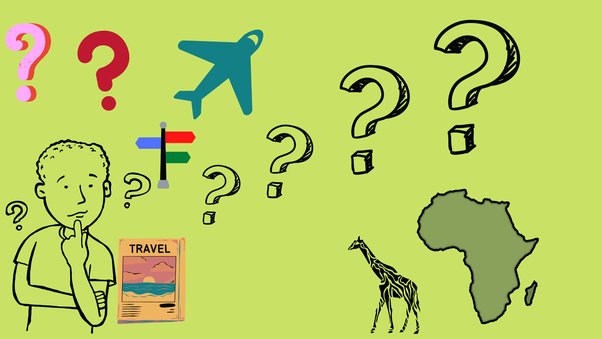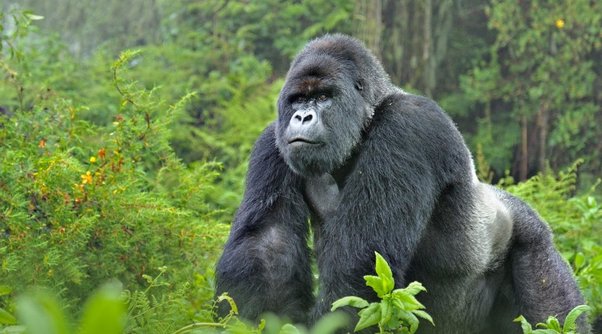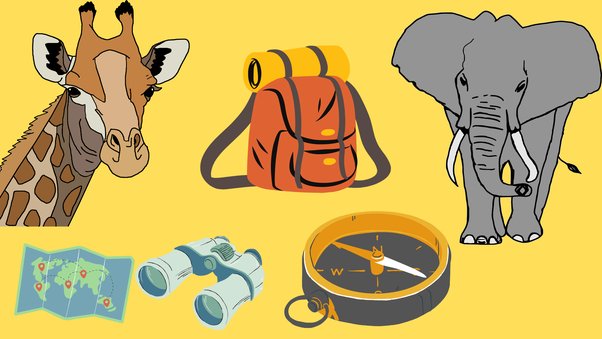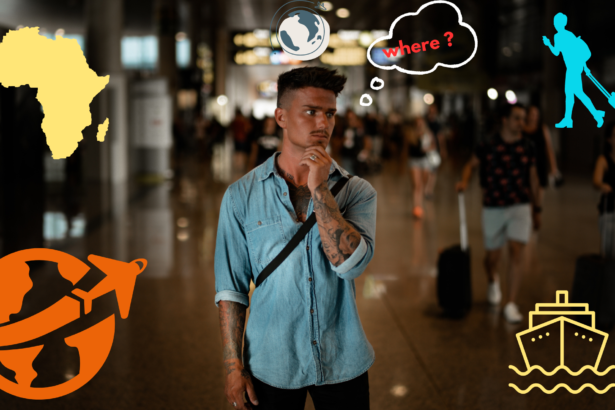Traveling to Africa soon? Yes of course! O you are thinking of traveling to Africa for the first time or for a holiday? If you answer is yes then congratulations! It’s the decision you have taken and a big step in your travel life. For those who have been there before you can probably ignore all this, but if it’s your first time, then it might be of use to you.
Firstly, the reason we are congratulating you even when we don’t know you is because you’re a lucky person. Not many people can afford to travel to Africa or have the courage to do so, it’s a long-haul flight in most cases and trust me you know nothing about this continent apart from the that documentary you liked a lot.
Now are you traveling solo or under a tour company? If you are alone, you’ve got a big task ahead of you and I would like to remind you not scare you that Africa is not for the faint hearted it’s a whole world out there and if you’re going on a package tour with a company then, most things like where you’ll stay and your safety will be taken care of.
1-How are you traveling?
If you are going alone, then its best to make sure that the most important things like safety, transport and health are taken café of earlier and they are clear. If you traveling with a local tour company then you must do good research of about the company you are going to trust. You can do a background check about its performance and reviews to know if it is right for you.
(i) Safety: No country is 100% safe so travel is a risk like any other activity you can do but you must find out the basic security situation of the country you heading to help you decide or know the dos and don’ts of any foreigner in that particular country If you’re not sure, make a contingency plan in case you get into trouble. Find out where your country embassy is in that country and their phone number.
2-Health
Before you go make sure you’ve had your relevant jabs. There are certain health risks, the most significant of which are Malaria, Covid-19, yellow fever and HIV/AIDS. Take a trip to your travel clinic, GP or doctor and get the relevant jabs. These can take weeks to get, so it’s best to plan in advance or you may want to find a private travel clinic. Even if you are of African origin, its best to be sure since viruses and other bugs mutate over time and when you might previously have been immune, you might not be to more recent viruses.
Malaria
Africa is one of those places where malaria is so common. Get the relevant anti-malarial medication from your doctor, and take it. Malaria is a killer with the biggest numbers of lives claimed on this continent each year so it’s best not to mess about. You should get an idea of the symptoms of malaria so you can recognize it in case you catch it anyway. The general symptoms include headache, temperature rise, nausea, fever, vomiting and flu-like symptoms, although these symptoms may differ depending on the type you’ve contracted. Malaria can also hide and come on several months after returning from an infected area, and if you get ill after you come back, make sure you mention to any doctor treating you that you’ve been to a malarial area.
Sexual Health
If you’re intending to be sexually active then take condoms with you. Some people slur the standard of African condoms however, they are generally of a high standard and can be bought readily and cheaply in most African countries. Diseases such as HIV/AIDS, Syphilis, Gonorrhea are common. HIV/AIDS, while treatable in the west, is still one of the major killers in Africa, so take care. Simply play safe. That’s use CONDOMS!
3-Country Background
Most developed countries will have detailed country information for travelers available over the internet. The most extensive of these are with the Foreign and Commonwealth Office in the UK, and the US Department of State. Read them well and absorb them but take them with a pinch of salt as they can scare the living crap out of you and put you off traveling. In the bureaucrat’s world, everything foreign is bad and everything indigenous is good. For example, you might find warnings against traveling to many African countries which flood with tourists each year and then ask yourself why does my foreign ministry page still indicates this country as a no-go area. The answer is easy. Not every information that’s given on these pages is true so always make your research.
Secondly your government is risk averse and doesn’t want to get sued for giving wrongful advice, for example if you based your trip abroad on favorable country advice and then got bombed, you might be able to sue them. So, bear that in mind.
But, before I run the risk of pooh-poohing the whole country reports system, they do contain valuable information and valuable warnings. It’s a good idea to read them and familiarize yourself with the contents and the particular thing that you MUST take notice of, such as health information, visa requirements and dos and don’ts.
4-Money
The banking system in Africa generally does not provide as many services options as you may expect in a Western country. You might be able to use credit cards and your current bank cards in some countries, but not in others. You may not be able to use your bank card in certain establishments, or there may be just one. Avoid taking travelers cheques. These are widely used in fraudulent activities and many places will not accept them. You might not be able to change up into local currency before you travel and if you are in the country look for exchange places always named as Forex Houses because the banks might not get good exchange rates anyway.
All in all, it’s best to take cash, in such currencies as British Pounds, Euros or US Dollars. The US Dollar is the most widely accepted. Take how much you are going to need and an extra 300 to 500 for contingencies.
A lot of people in Africa will instantly convert their prices to US dollars for foreigners anyway, and the dollar is especially useful if you are traveling outside major capital cities where the only foreign money banks will take will be the US Dollar. So, even if you’re traveling with Pounds or Euros, its best to get a few US Dollars to be on the safe side. Another thing to take account of is that some countries had a lot of fake US bills distributed after the Iraq wars and may even refuse US Bills which are dated before 1999. So, get US Bills which are dated 2000 and later if you are unsure.
Lastly on this point is being careful. Keep your money safe. Don’t put it all in the same place and don’t put any in your suitcase. If you’re out and about put some money in each pocket. Africans like stuffing it in their socks so you might want to put some there as well. Check if your hotel or accommodation has security for passports and money and use them if necessary. Bigger hotels will have a safe in the rooms.
5-Travel Insurance
Don’t ask. Just get it. everyone who travels should have travel insurance so that in any accidents or happening that fall into its cover can get taken care of by the insurance. No one knows what will happen and the fact is that you are more secure if you acquire a travel insurance. So, get travel insurance. It’s mostly sold under “World Wide” policies. You’re worth it.
6-Cultural Awareness
If you are from the west or other rich country it’s almost inevitable that local people will have certain perceptions of you. The most commonplace is that you are rich. If you’re white it’s even worse and they might assume you have a dollar tree growing in your garden. Remember a lot of these people are broke, in countries where social security is limited to running orphanages, and thousands of westerners have passed through throwing money away on silly projects or in expensive hotels. So, you’re rich. Expect to be hassled and overcharged, and if you’re traveling alone get a local to look after you and if you are with your guide, it’s good to let him bargain and get a good price for you. On the positive side, most sellers will just ask hike a product for the price of a beer, which is about a dollar.
But whatever you do don’t be an ass with a big head and don’t treat the locals like idiots. There will be lots you might not understand but there’s no excuse for treating people with a lack of respect. Mind your language; swearing is often frowned upon in many African countries.
7-Visa
When visiting an African country, you will almost always need a visa. These can be purchased in advance at the relevant embassy or consulate in your own country, and are frequently available at the border when you arrive, however long lines might be frustrating if you have a connecting flight. Visas can cost over 65 dollars depending on where you go, and you can pay in Euros, Pounds, or Dollars in most cases. If you’re unsure, go with bucks. If you want to be safe, get your visa ahead of time, especially if your country’s relations with the country you’ll be visiting are strained. The majority of visitor visas will be awarded for a period of up to three months, or for the duration of the trip.
8-Learn the Basic words
One of the keys to success when it comes to travel is the ability to learn a few words of the language people speak in the country where you are traveling. It is the magic trick of any traveler. This will make people open up to you, welcome you, protect and be ready to help you because they know you love their culture and you are ready to learn from them. You become one of them when they hear you speak or try to catch up with their language. Try to get these three magic words in each destination you go too in Africa and you will be surprised how people love you.
1) Good morning (Greetings)
2) Thank you (Gratitude)
3) I am sorry (Empathy)
The above are the magic words in the whole world as far as I know and if you take them on you will have an amazing travel.
9- Sharing & Gratitude.
Sharing is caring. Yes, after all the world revolves on receiving and giving. In your journey to the African continent, you will take notice of a lot of people with necessities and some of them will be where you are. if you can and the law of the place together with the cultures allows you to give a hand, please do for there is an African saying that says “A journey with blessing can’t come across bad luck for blessed is the hand that giveth than the one that taketh” for that little you give might be a world to someone. From your hotel attendants o butlers, kids on the streets to your local guide always be grateful with a tip and this will not only make you look here but you will feel great as a human being.
10-Avoiding Trouble
There’s a few of things you can do before and after you get into trouble.
Information: Tell people where you are going and when you’ll be back. If you’re going for a long time then inform the embassy or consulate on your arrival of your stay in the country. Tell your friends or family back home where you’ll be staying.
Documents: Make two photocopies of your passport – the identity page, and if relevant, any visas you need. If it gets stolen then a photocopy is often good enough to prove who you are to get an emergency replacement. Leave one copy at home, and take another with you. If you have a driving license, take this also, as it can be considered evidence of identity if your passport goes missing.
Mobile phones: get your phone unlocked – that’s network unlocked – so any SIM card in the world will work in it. Buy a local SIM card when you get there – they are usually pay as you go, and cost about 10. Then SMS your family back home to give them your number there. They can use a cheap international call service to get hold of you if necessary. Get the emergency number for your local embassy or consulate on the phone so you can call your country representatives if necessary.
Money: Western Union offices are all over the place in Africa. It’s a growth industry. So if you get robbed or need money in a hurry, you can get someone in your home country to send it to you. They can SMS the details to you on your local phone number, but you’ll need some ID to pick it up, and they may ask you a test question (“What’s your dog called?”, for example).
Police: If you get into trouble with the police then stay calm. Sadly, a lot of police officers are very poorly paid and only too happy to take a bribe. If you’ve been really criminal then you are certainly in trouble so insist on your right to see your ambassador or consul. If it’s something petty or something you’ve just been accused of for the hell of it, it will almost certainly be easier to pay whatever is needed to have the matter buried. HOWEVER, WE ADVOCATE THAT YOU DO NOT BREAK THE LAW WHEREVER YOU GO, and you should know differing laws for where you go. For example, in a lot of African countries homosexuality is illegal. Information such as this is held in country reports that we discussed earlier. Make sure if you are Gay and travel then don’t be an exhibitionist.
CONCLUSION
It’s not hard to travel to African you only need to be organized and make sure you do your own research many places in Africa are safe to appoint that you never imagined and well your Ministry of Foreign Affairs ministry website might not tell you this. Go on and do your own research then take our advice above and you will be safe. I can’t finish this good pierce without recommending you a good destination so if you are ready to travel then visit this link for you will be glad you did. And with that i wish safe travel
The standard chunk of Lorem Ipsum used since the 1500s is reproduced below for those interested. Sections 1.10.32 and 1.10.33 from “de Finibus Bonorum et Malorum” by Cicero are also reproduced in their exact original form, accompanied by English versions from the 1914 translation by H. Rackham.





